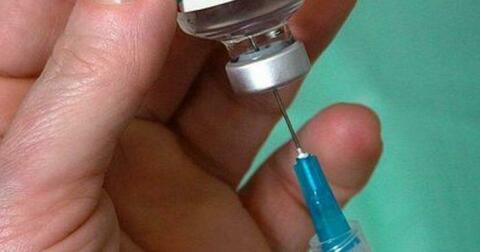As monkeypox (hMPXV) cases continue to rise in New Jersey and across the country, public health agencies both locally and nationally are hard at work promoting the importance of monkeypox (hMPXV) treatment, vaccinations, and stopping the spread of misinformation.
The monkeypox (hMPXV) virus causes a rare illness that can affect anyone, regardless of age, gender identity, or sexual orientation.
The virus is passed through close or personal/sexual contact with someone sick with monkeypox (hMPXV).
Although the monkeypox (hMPXV) virus is related to smallpox (same family of viruses), they are different from one another.
People sick with monkeypox (hMPXV) typically experience swollen glands (lymph nodes), fever, flu-like symptoms, and a rash (look similar to pimples or blisters; can be itchy or painful) that starts on the face and spreads to other areas of the body. Monkeypox (hMPXV) cannot be spread to others by passing someone on the street, at the park, or in a store — there must be direct contact with skin, respiratory fluids, or surfaces/fabrics used by someone with monkeypox (hMPXV).
Illness from the monkeypox (hMPXV) virus usually lasts about 2-4 weeks and is rarely fatal.
The virus can be passed to others from when symptoms first appear to when the rash has fully healed — no more scabs and a new layer of skin appears.
Although most people sick with monkeypox (hMPXV) experience mild illness, people who are pregnant or breastfeeding and those with skin conditions or weakened immune systems can experience severe illness or complications related to the virus.
People who are pregnant can pass the monkeypox (hMPXV) virus to their unborn child.
You should visit a healthcare provider and get tested for monkeypox (hMPXV) if you:
- are sick with symptoms of monkeypox (hMPXV)
- think you may be sick with monkeypox (hMPXV)
- have been exposed to someone sick with monkeypox (hMPXV)
- have an unexplained rash that is itchy or painful
“The New Jersey Department of Health (NJDOH) is working in conjunction with CDC (Centers for Disease Control and Prevention) and local health departments to quickly identify monkeypox (hMPXV) cases and close contacts, provide treatment and vaccine, and further prevent the spread of disease.
CDC is working with state and local health officials to monitor probable and confirmed cases within the country.”[1]
Monkeypox (hMPXV) cases in New Jersey remain relatively low, however, suspected and confirmed cases increase daily as the virus spreads.
Getting vaccinated against monkeypox (hMPXV) is an essential step in stopping the further spread of the virus.
The NJDOH provides monkeypox (hMPXV) vaccines at no cost to eligible individuals.
Data from the current monkeypox (hMPXV) outbreak both nationally and in New Jersey shows the most significant impact of the virus is within the social and sexual networks of gay, bisexual, and other men who have sex with men.
This does not mean monkeypox (hMPXV) only affects LGBTQ+ communities.
It’s crucial to combat misinformation about monkeypox (hMPXV) to prevent stigma against LGBTQ+ communities.
Monkeypox (hMPXV) is not an illness of sexual orientation; it’s an illness of close or personal/sexual contact with a person who has monkeypox (hMPXV).
Anyone exposed to the monkeypox (hMPXV) virus is at risk of illness.
